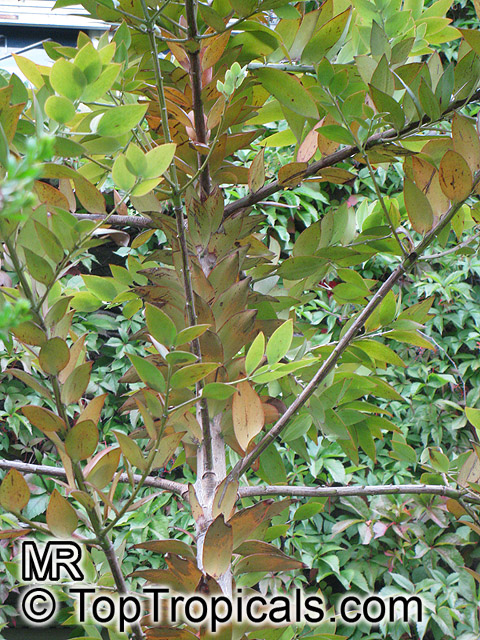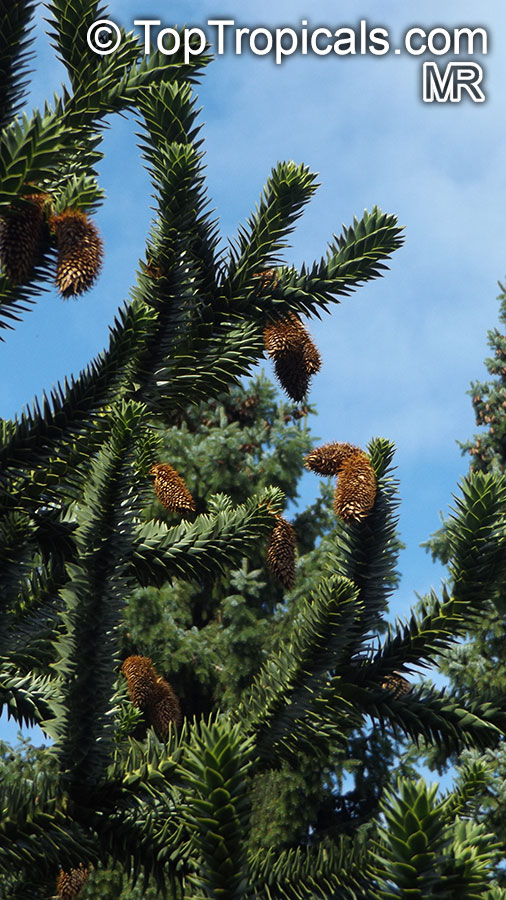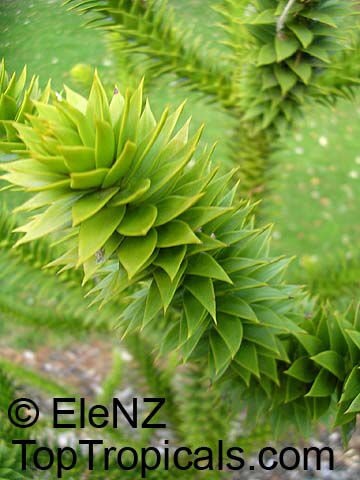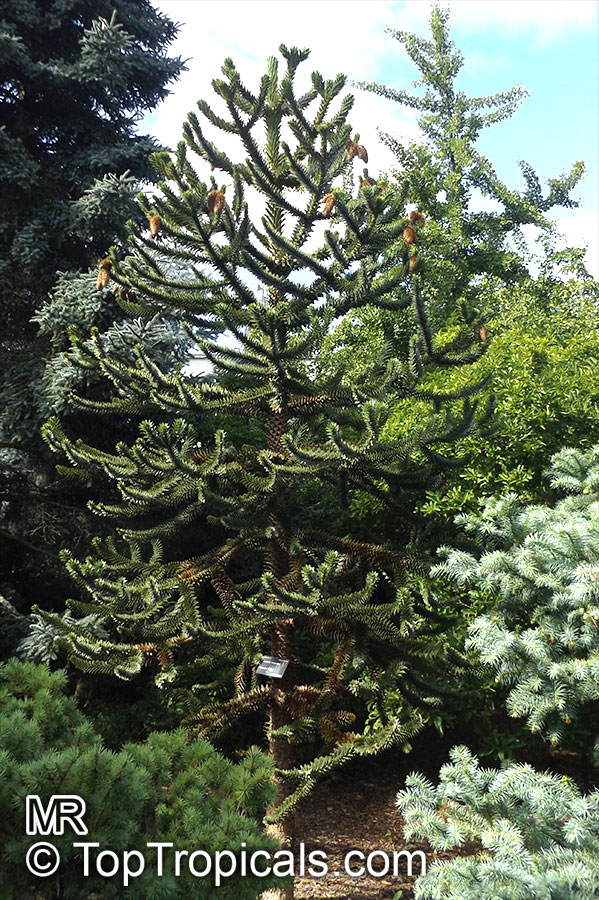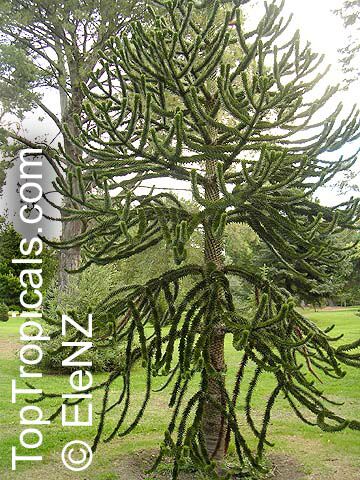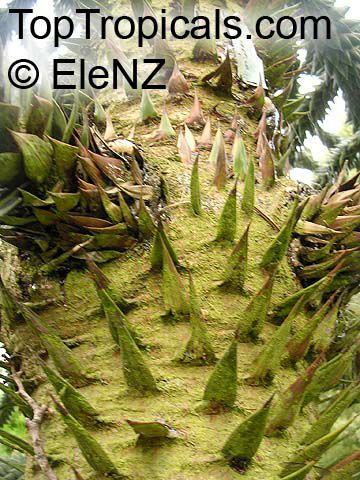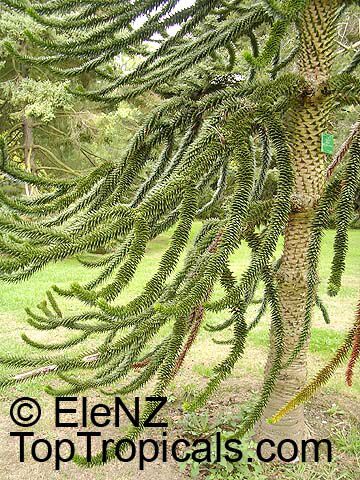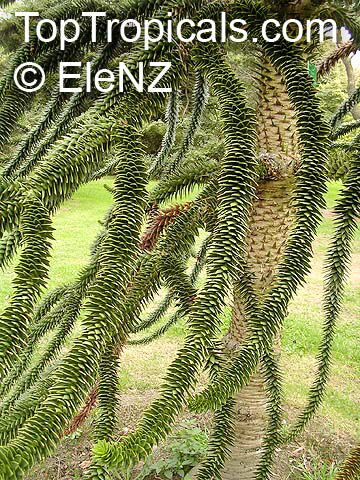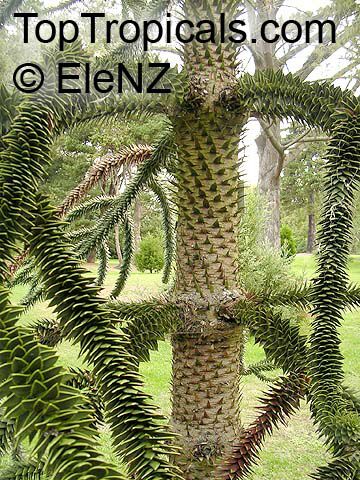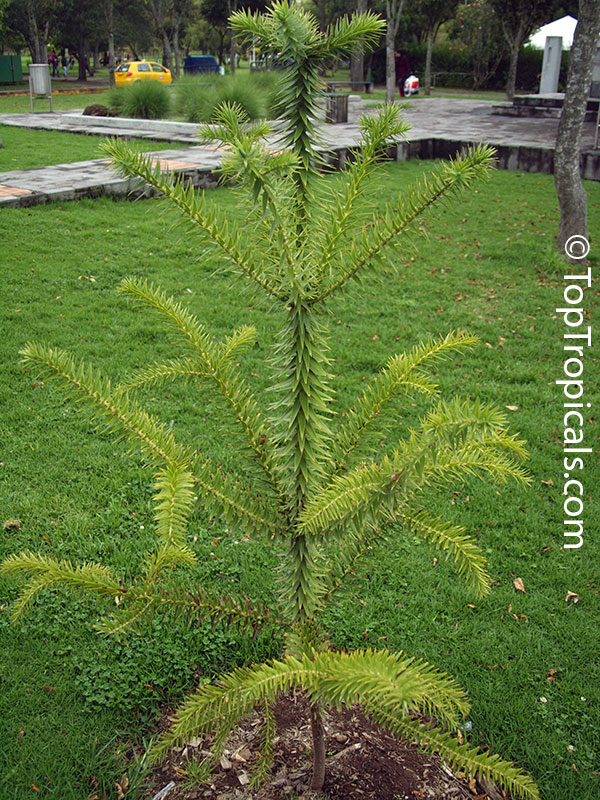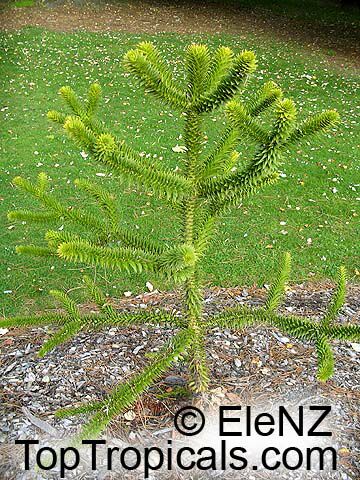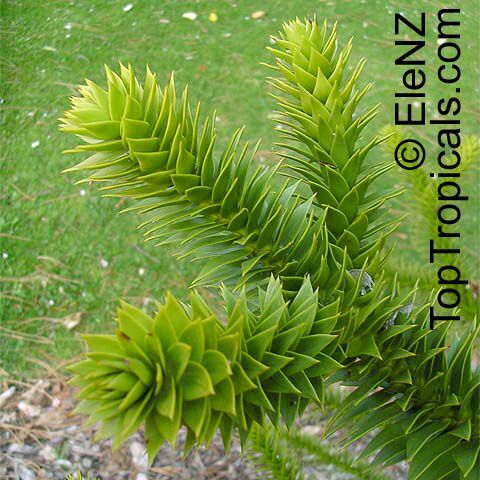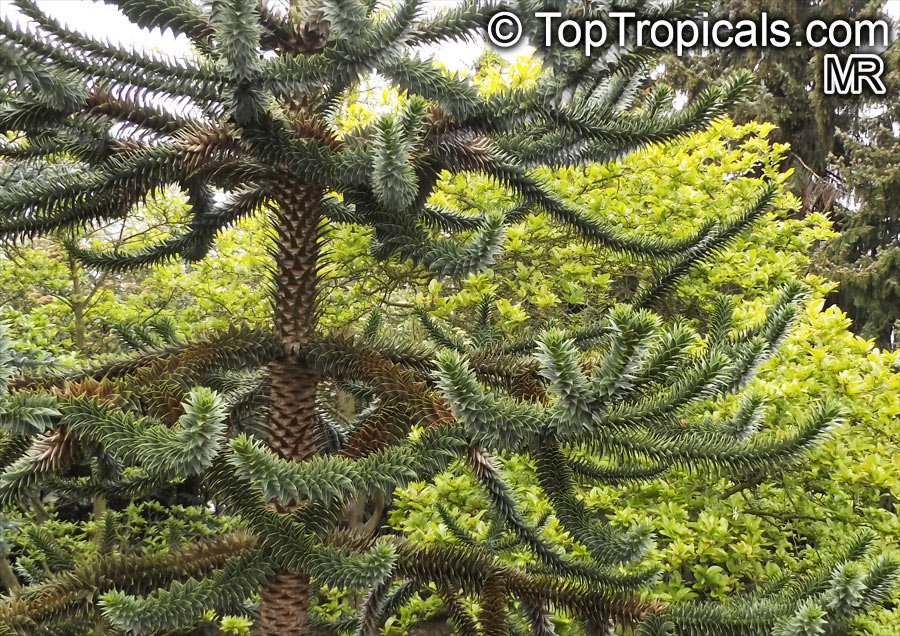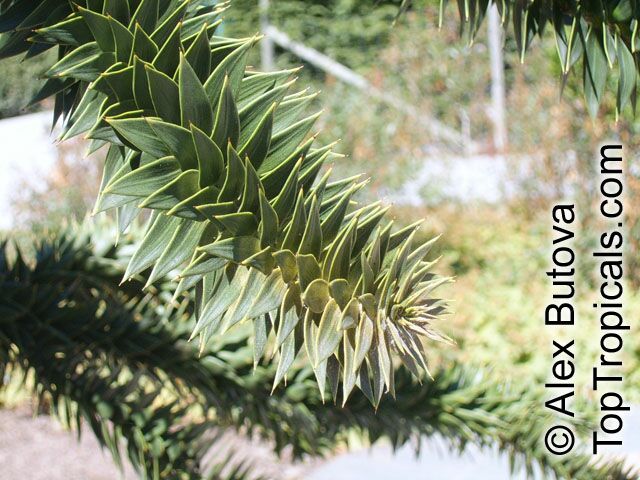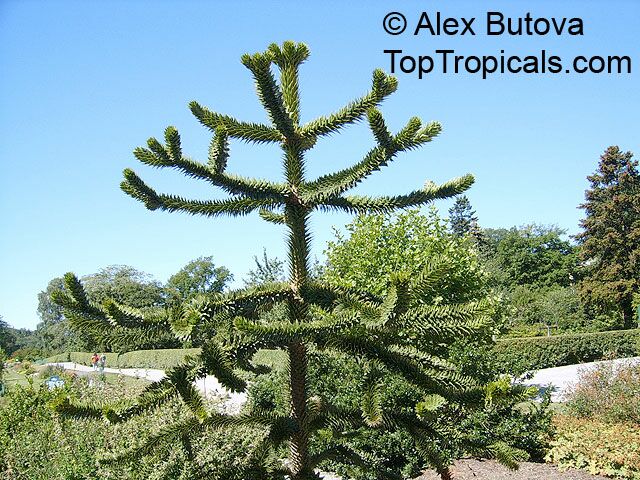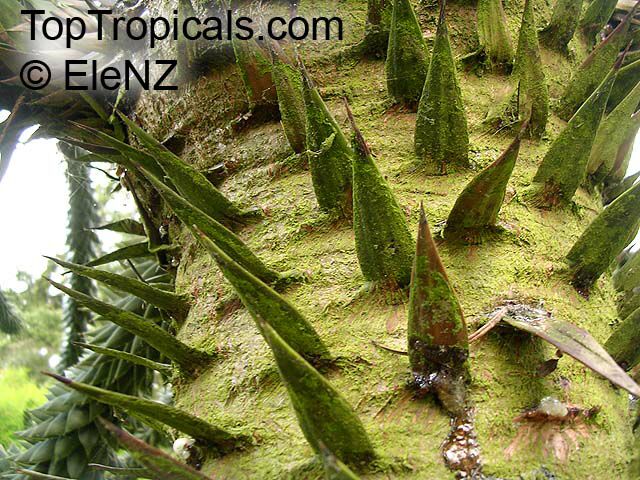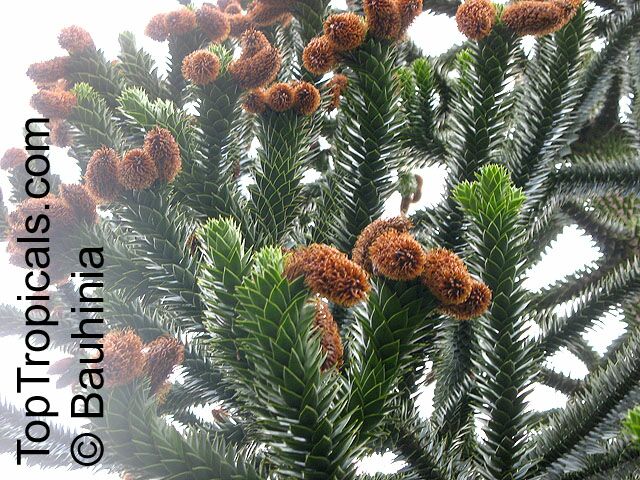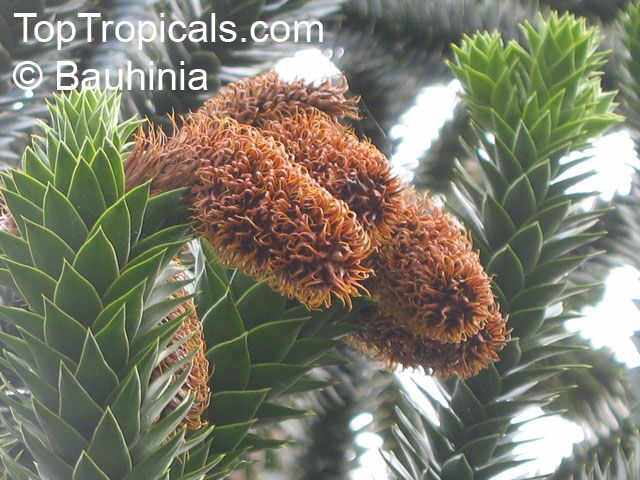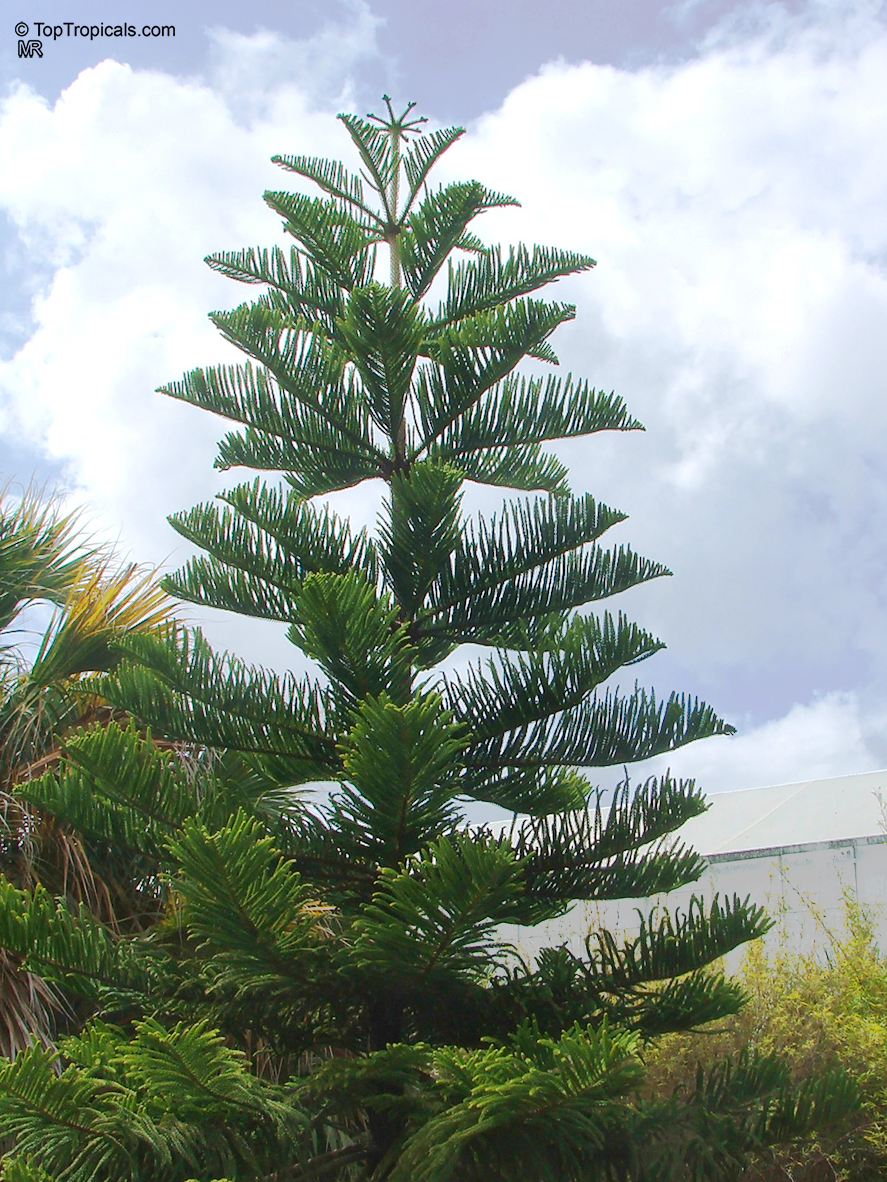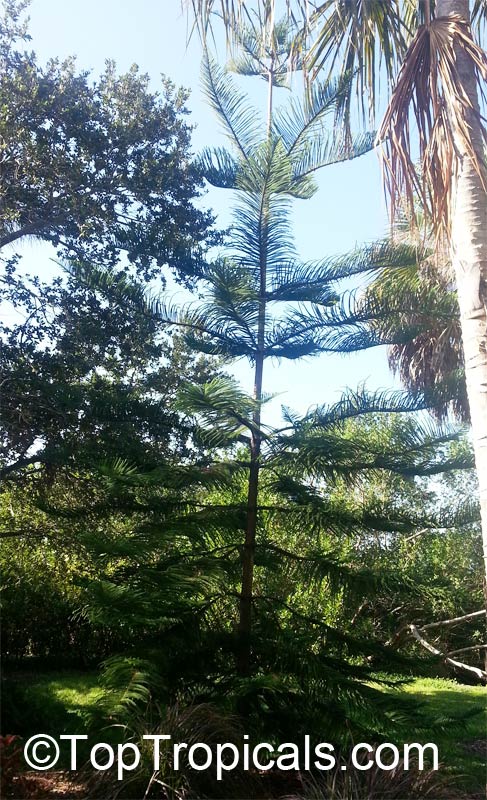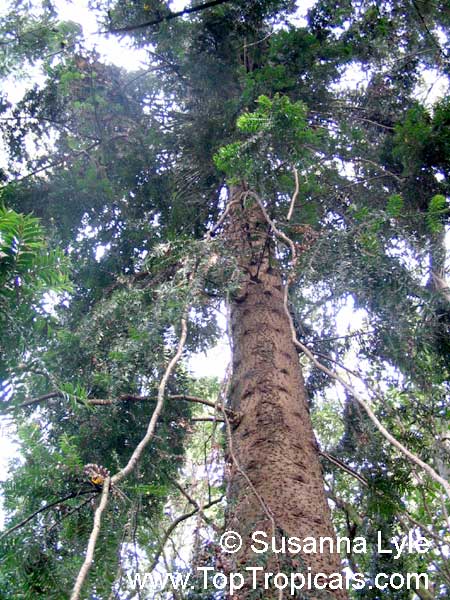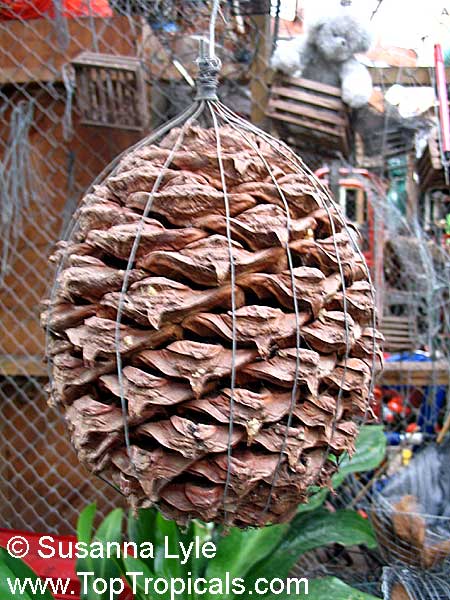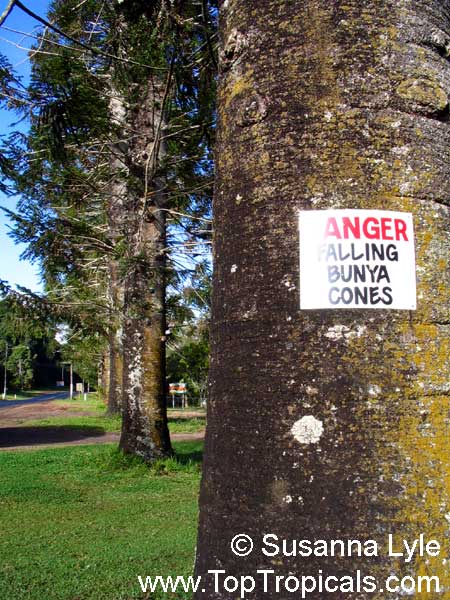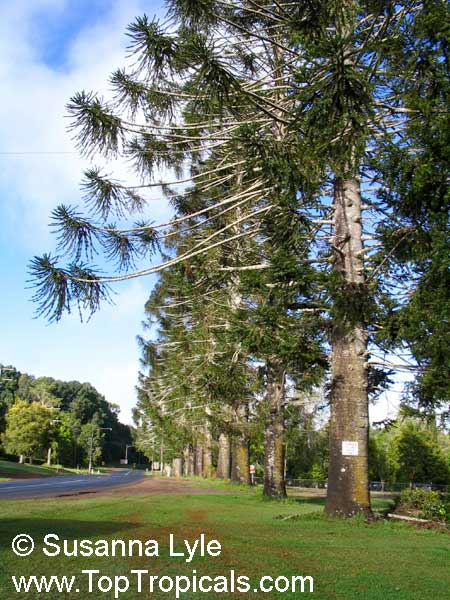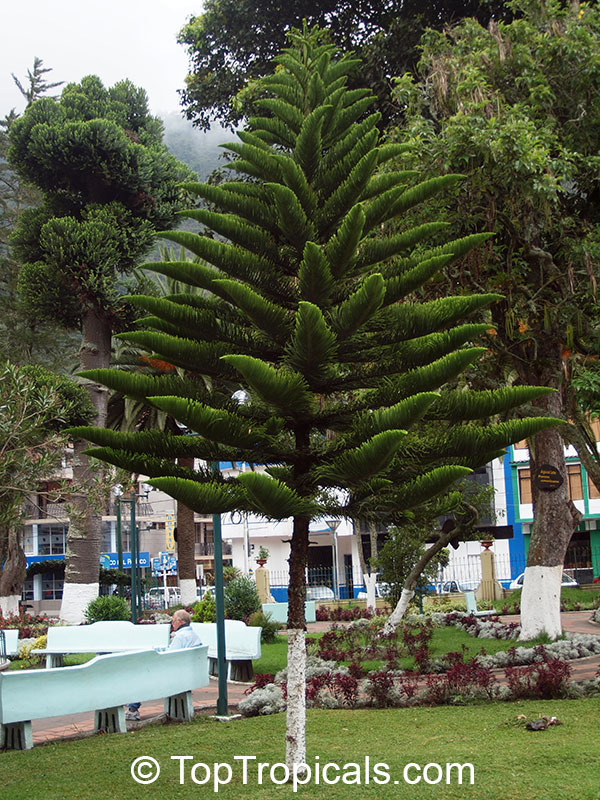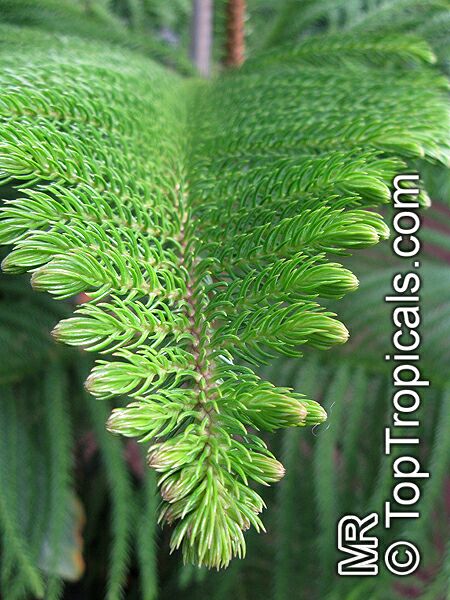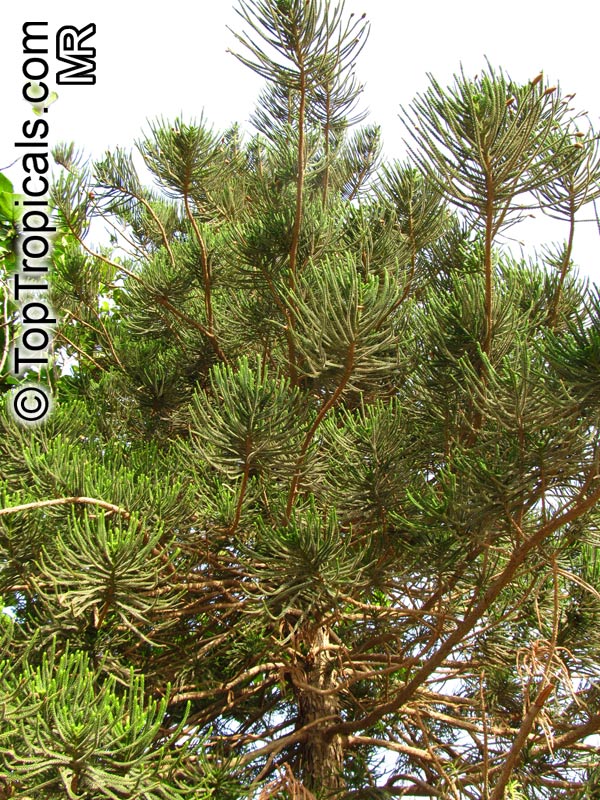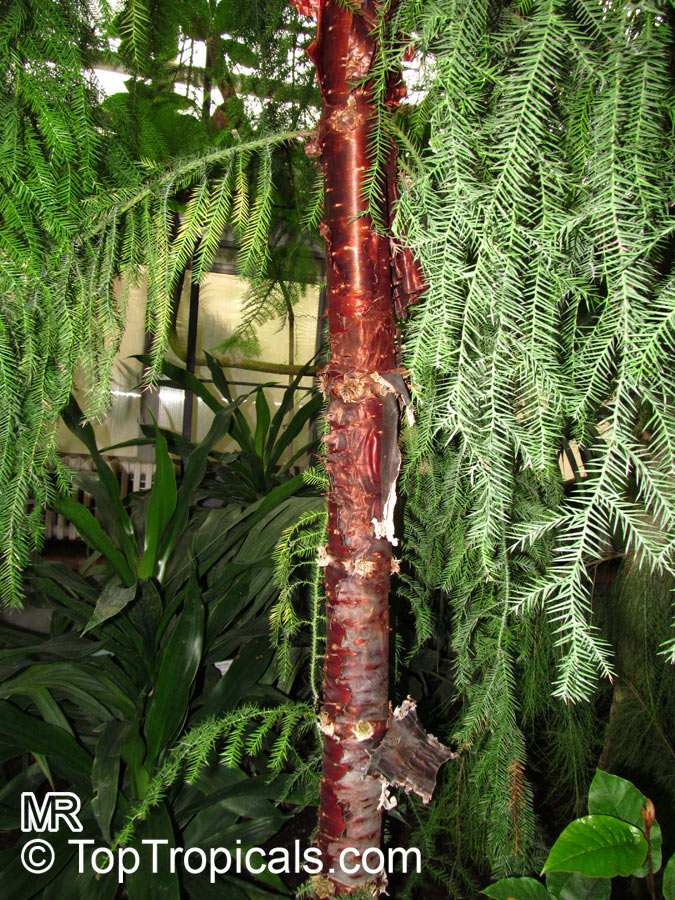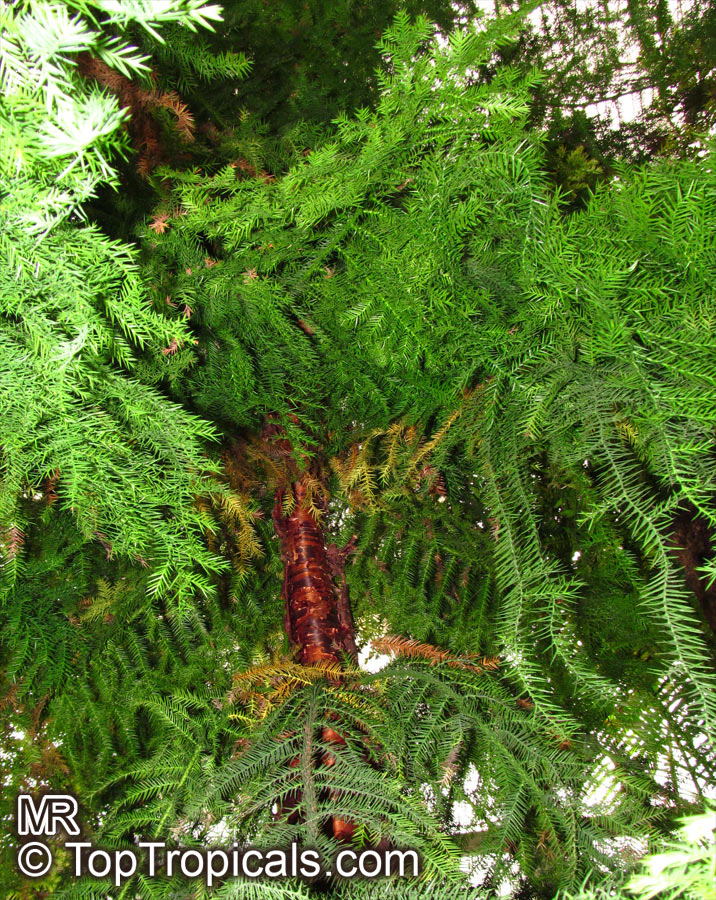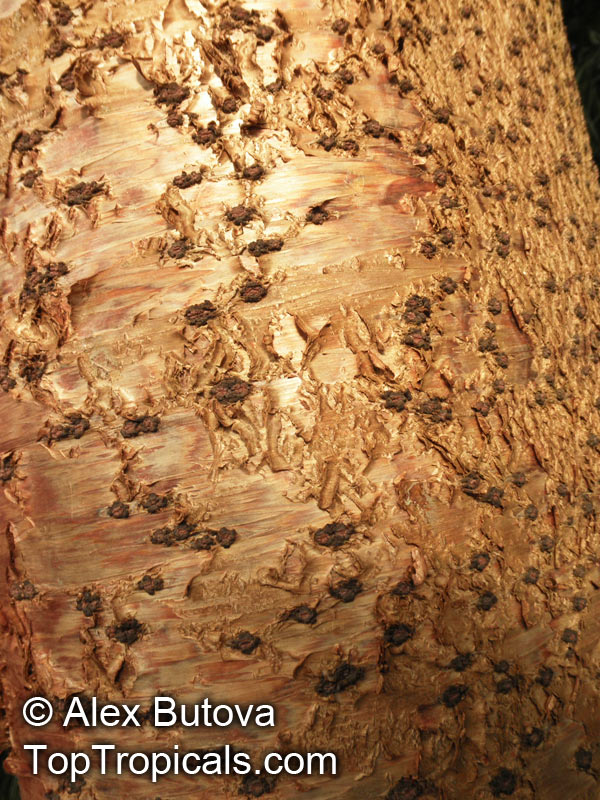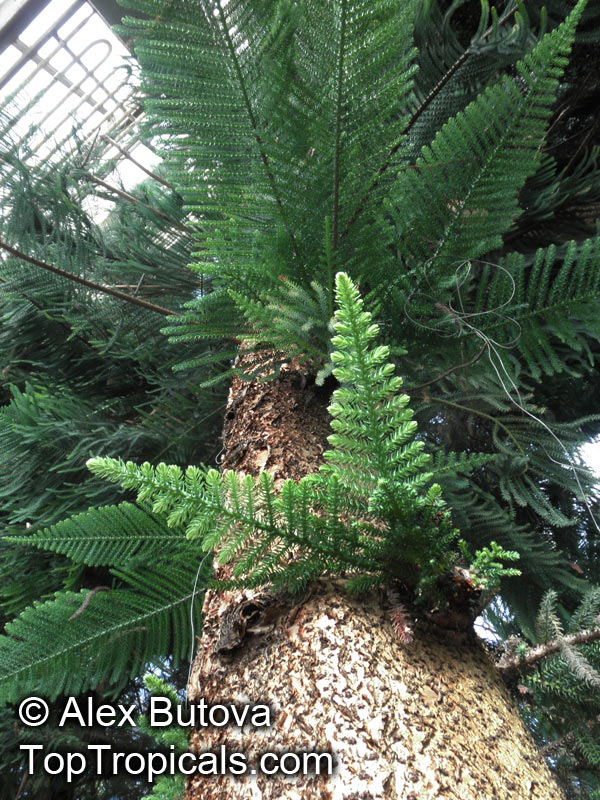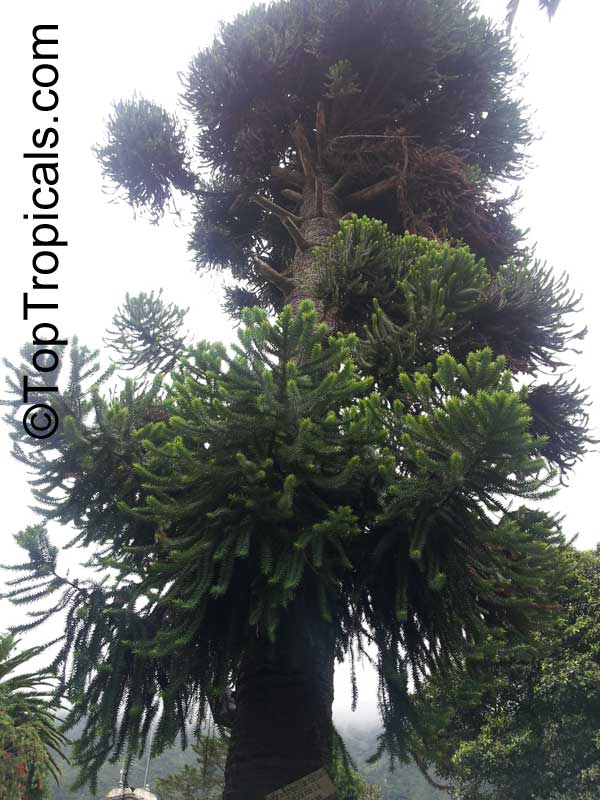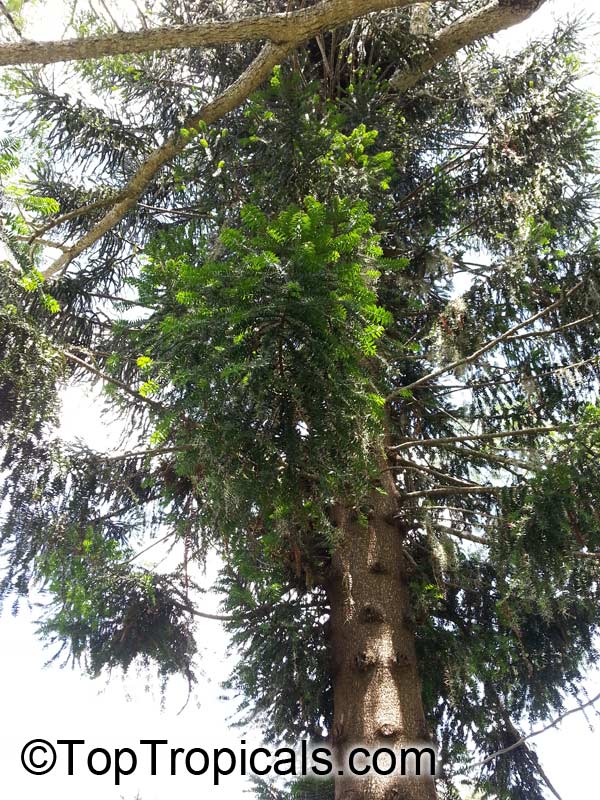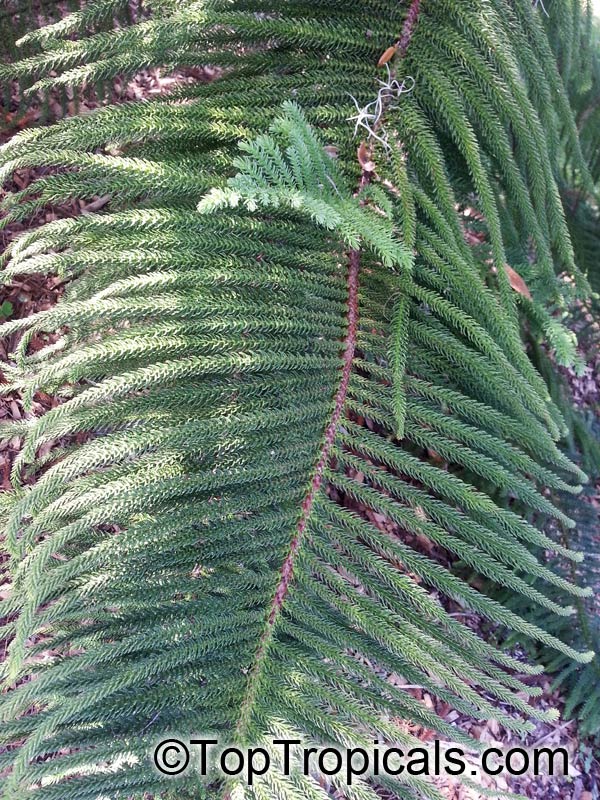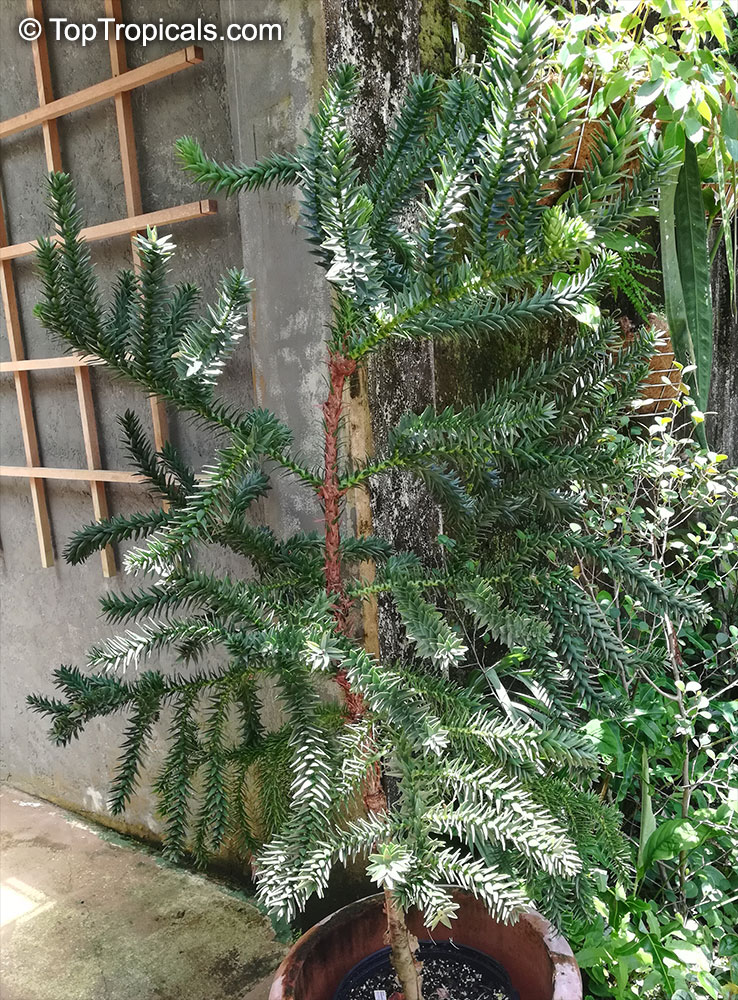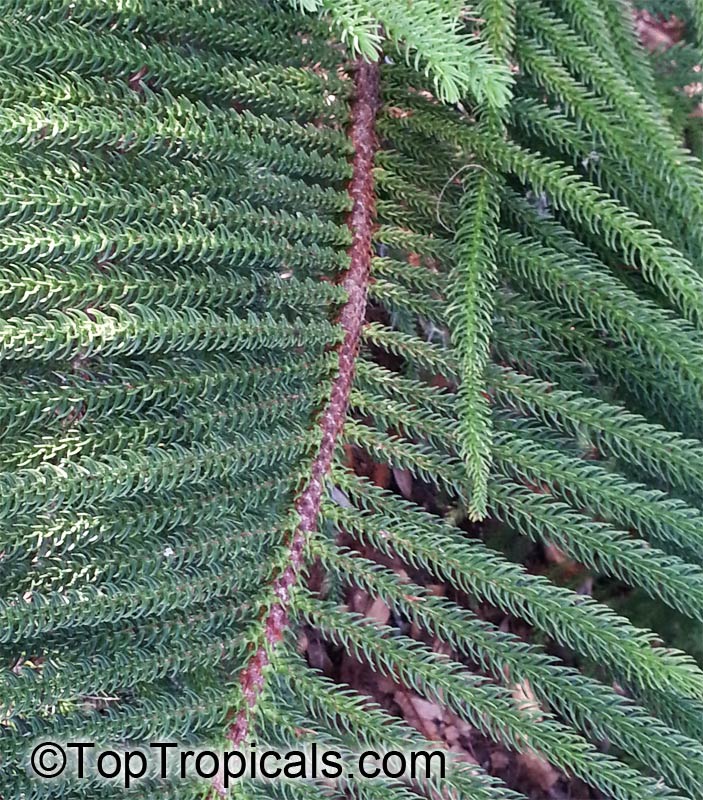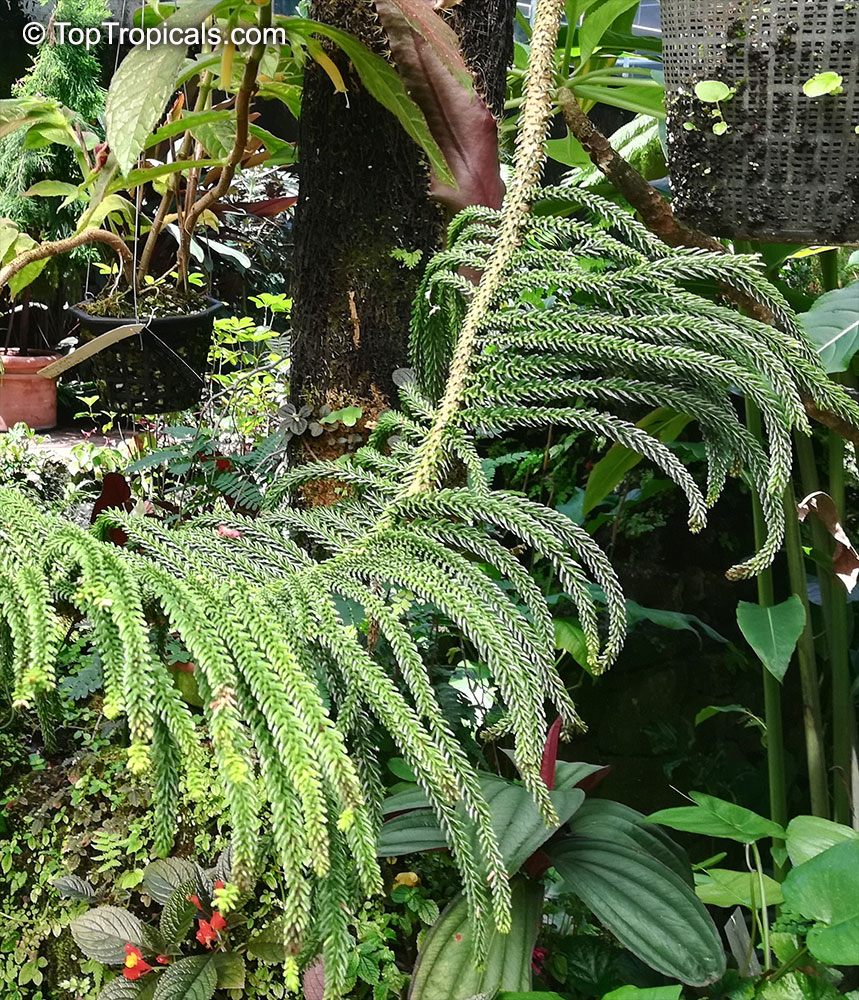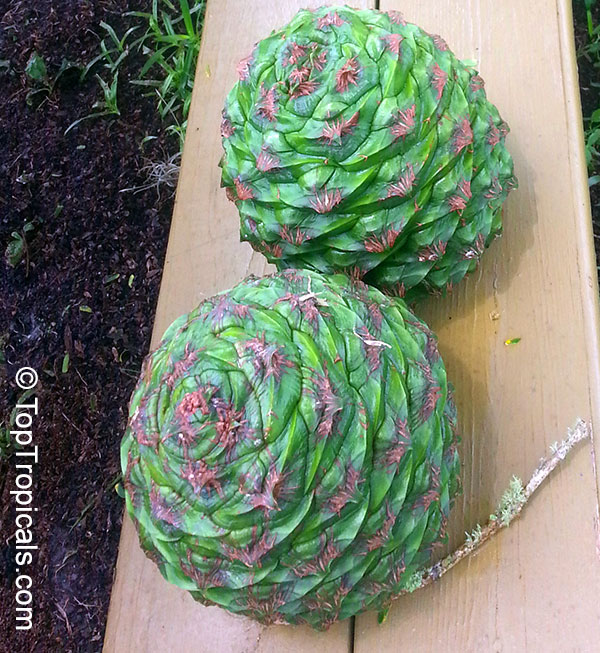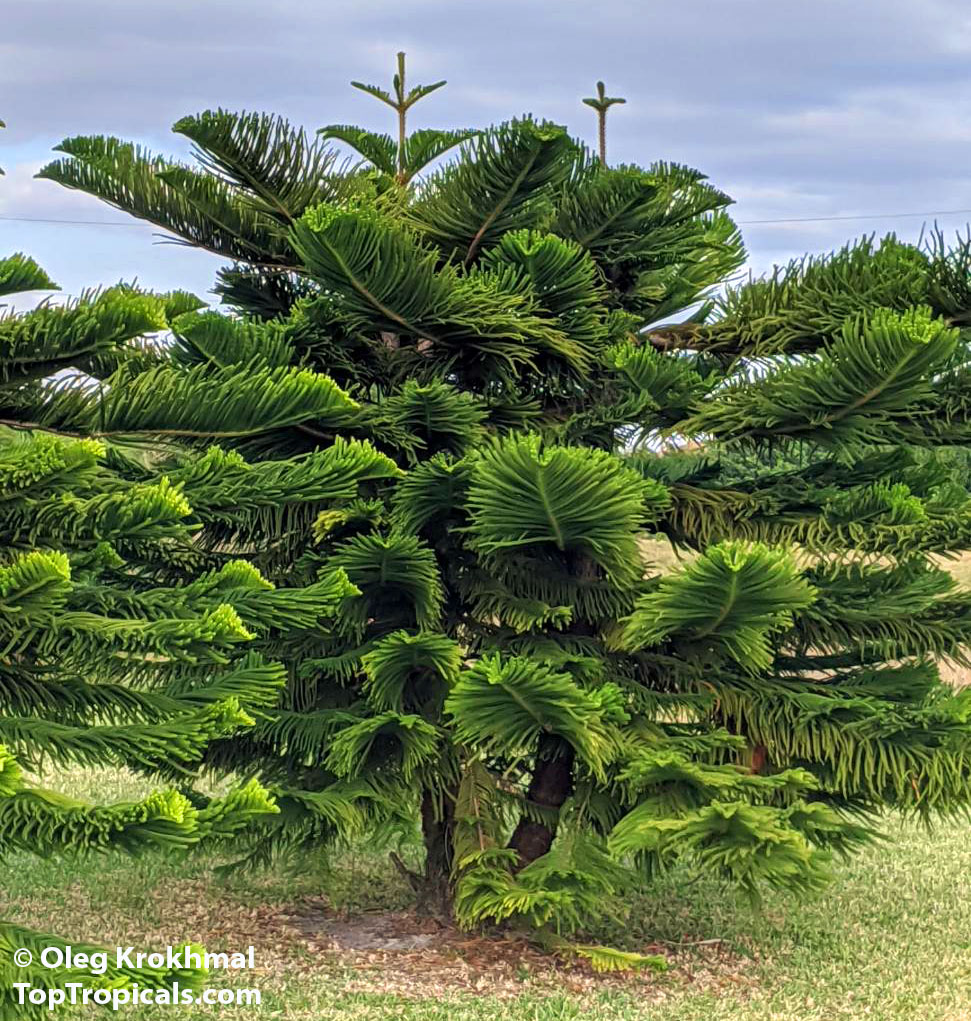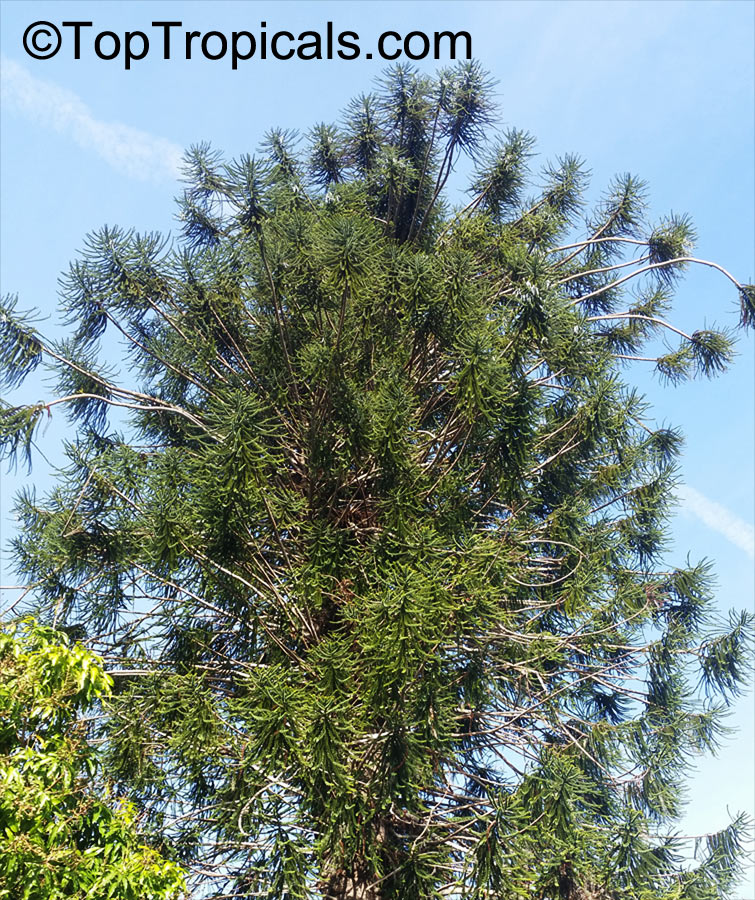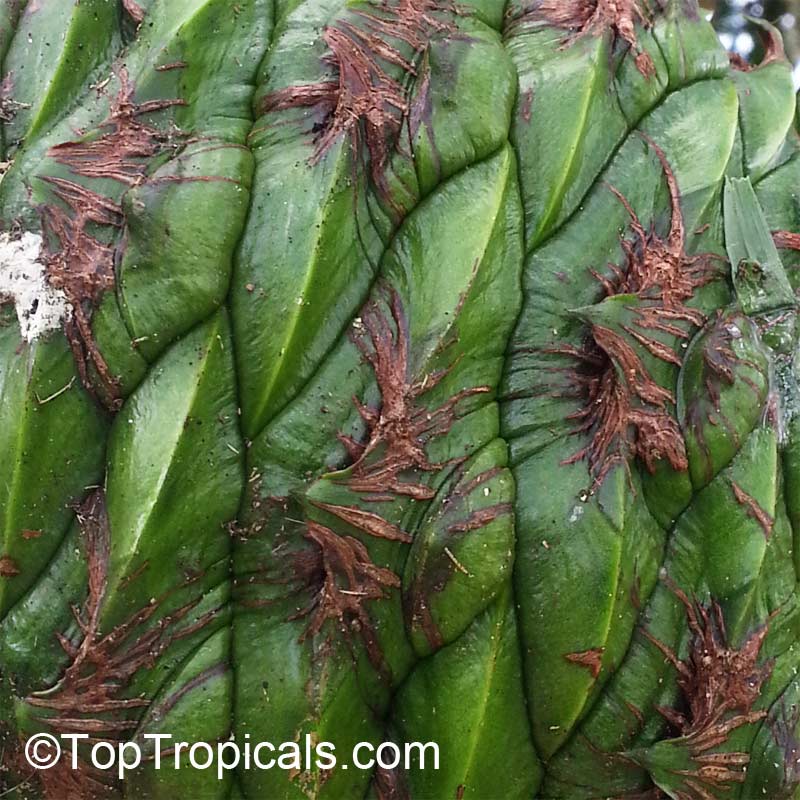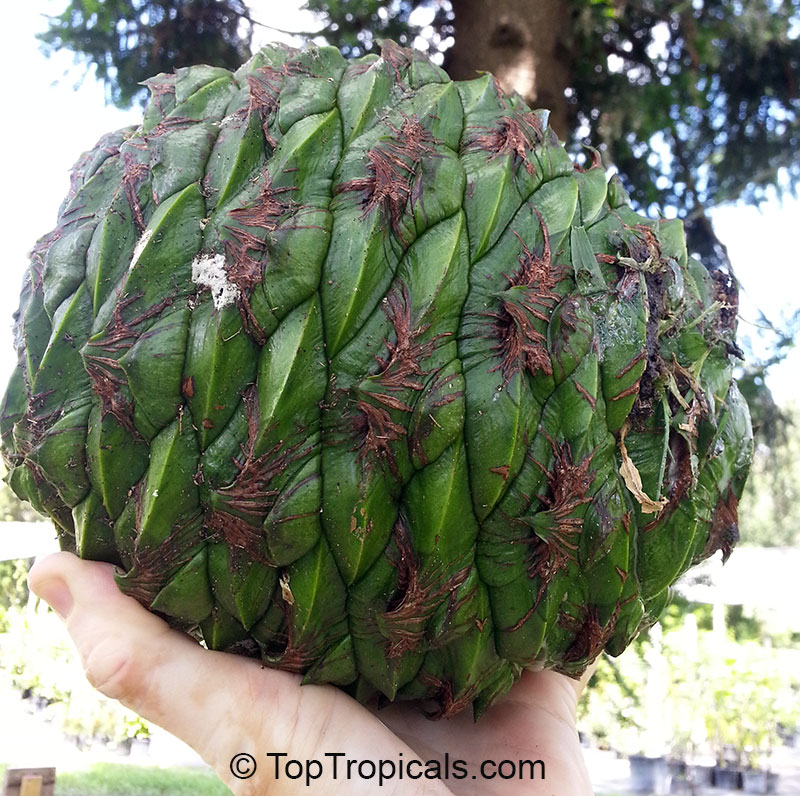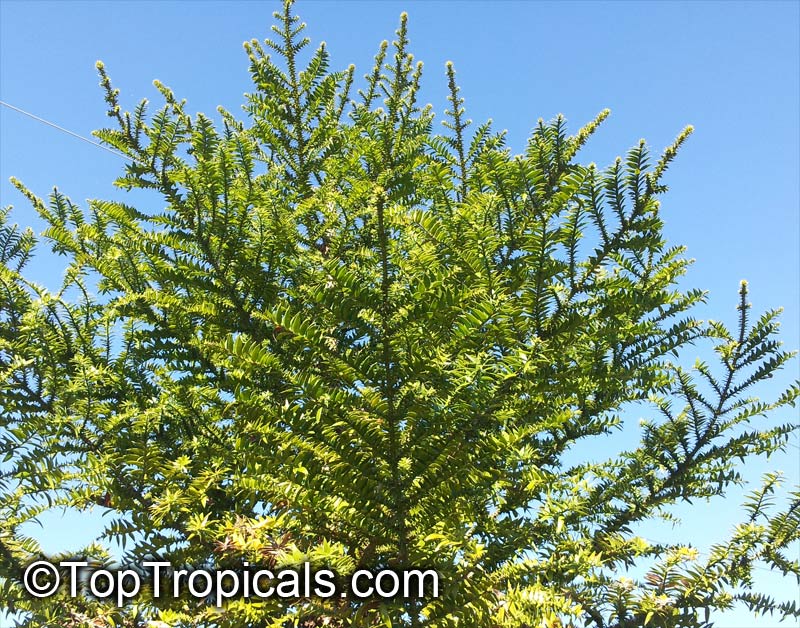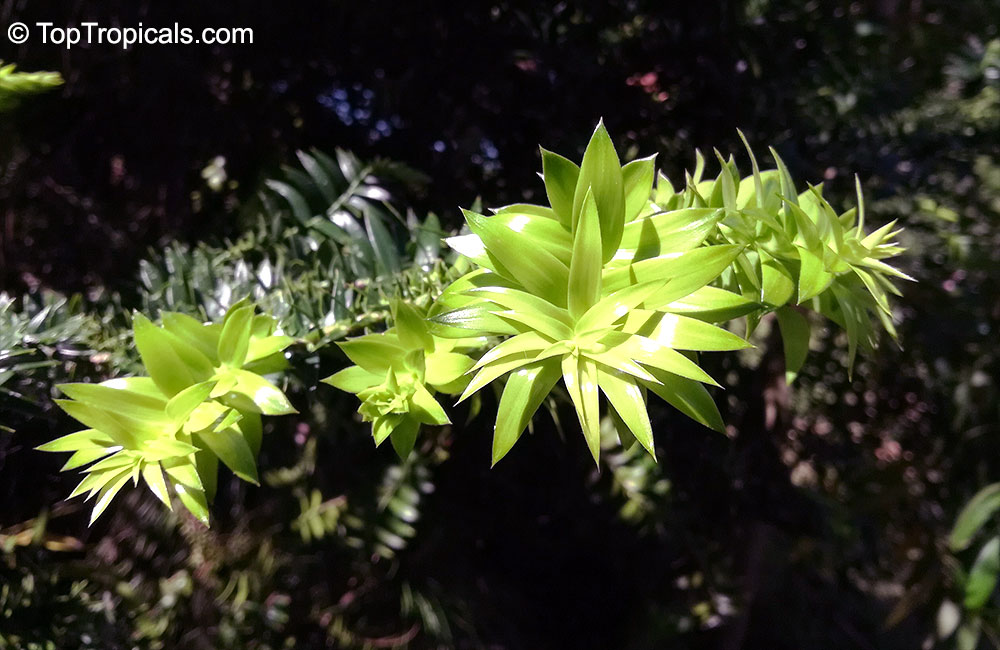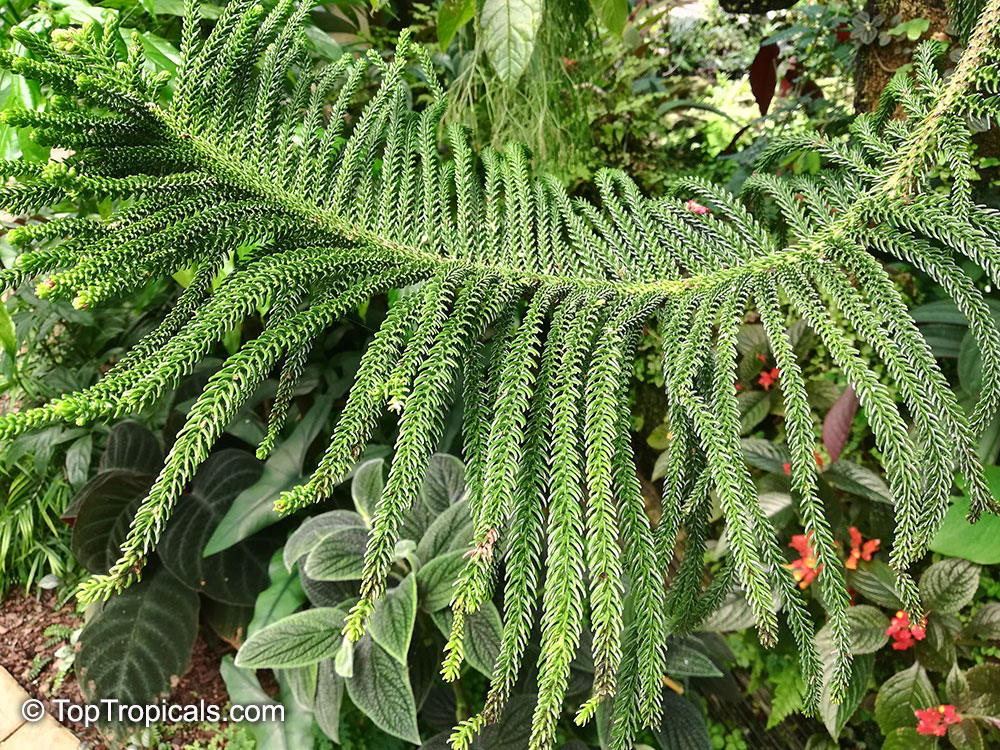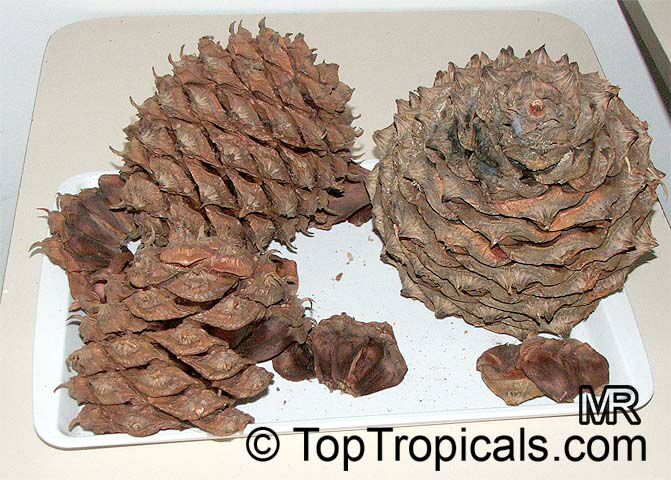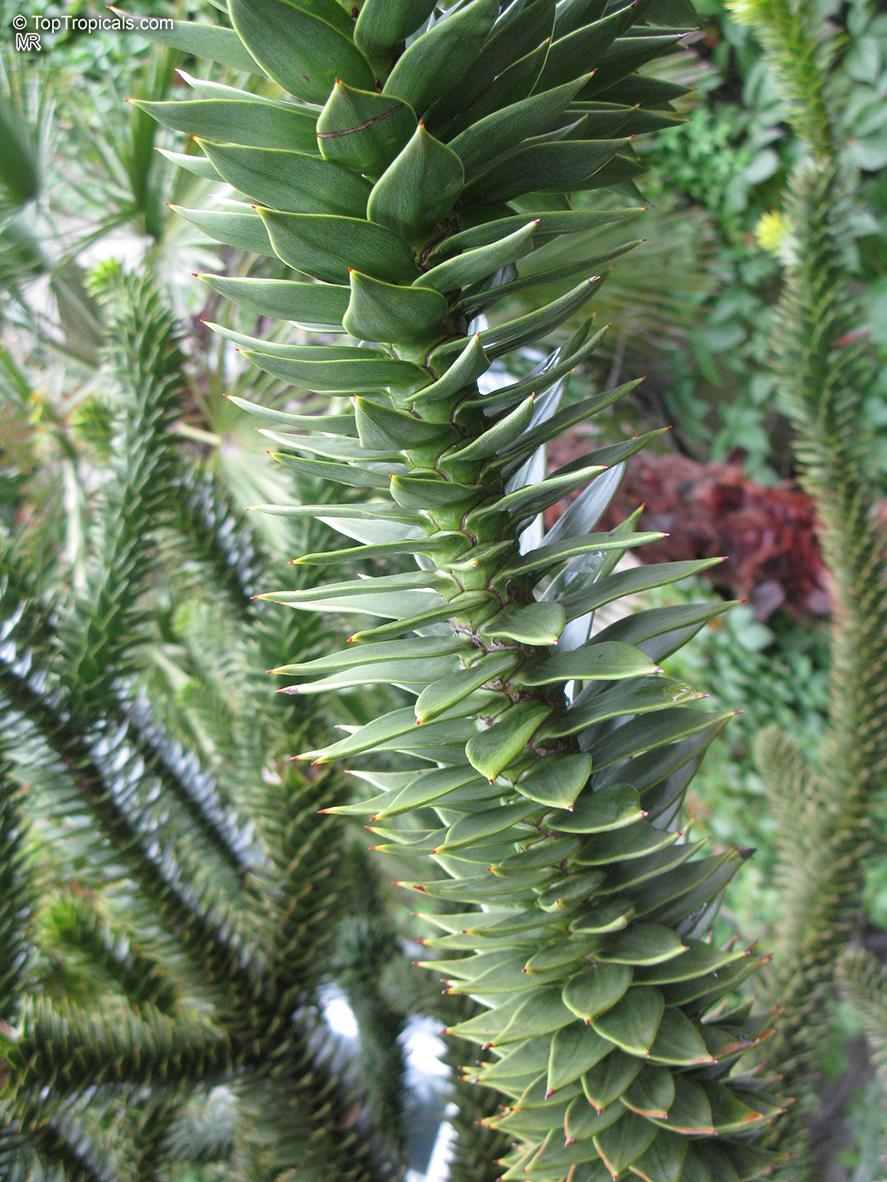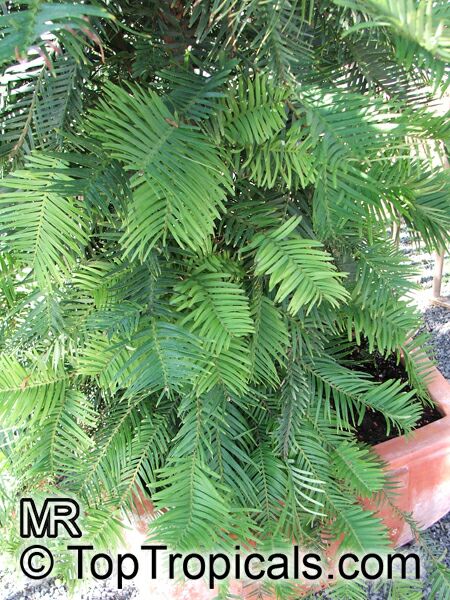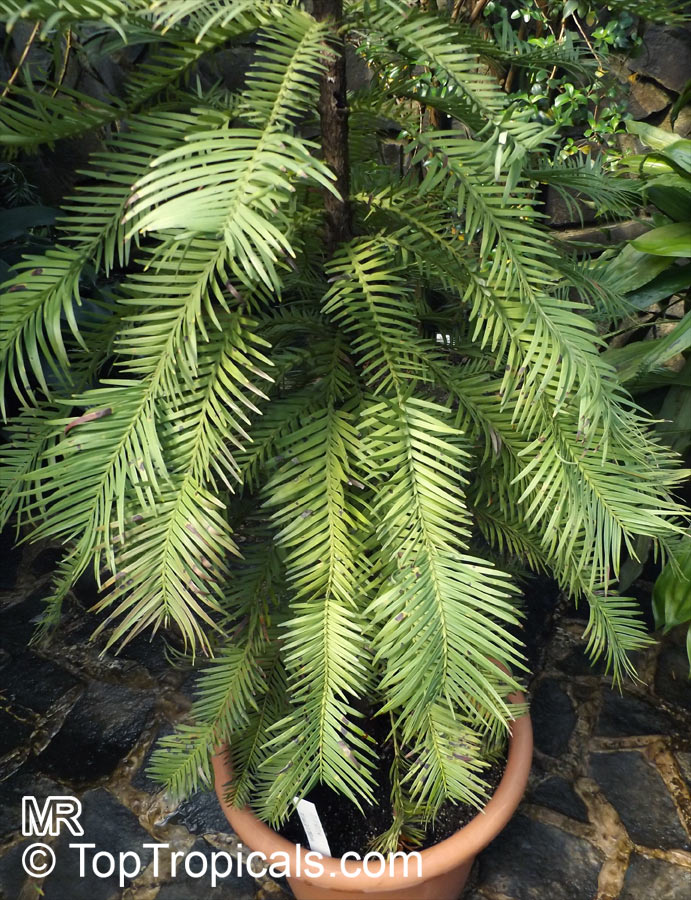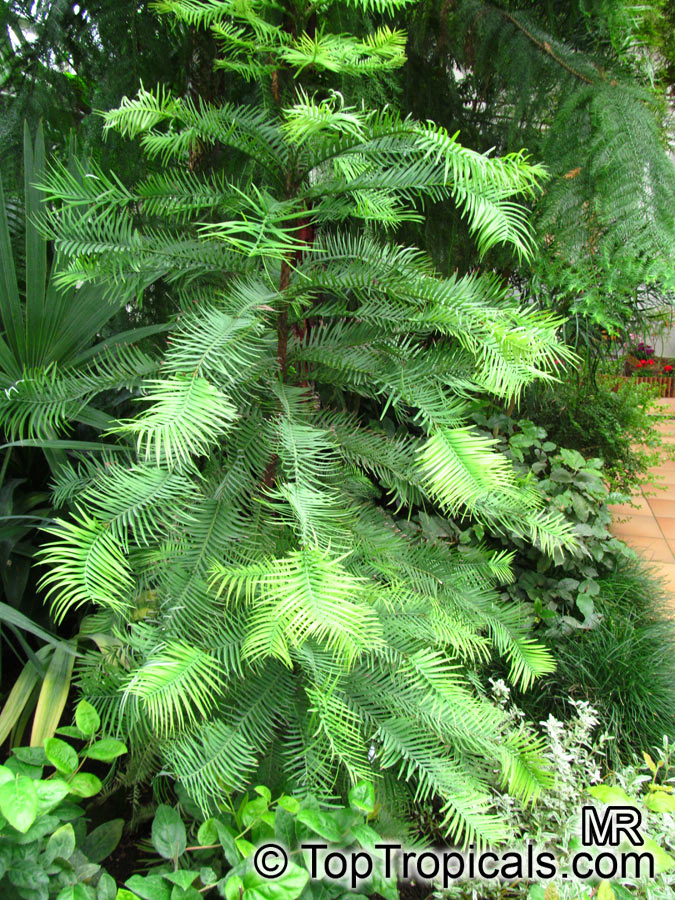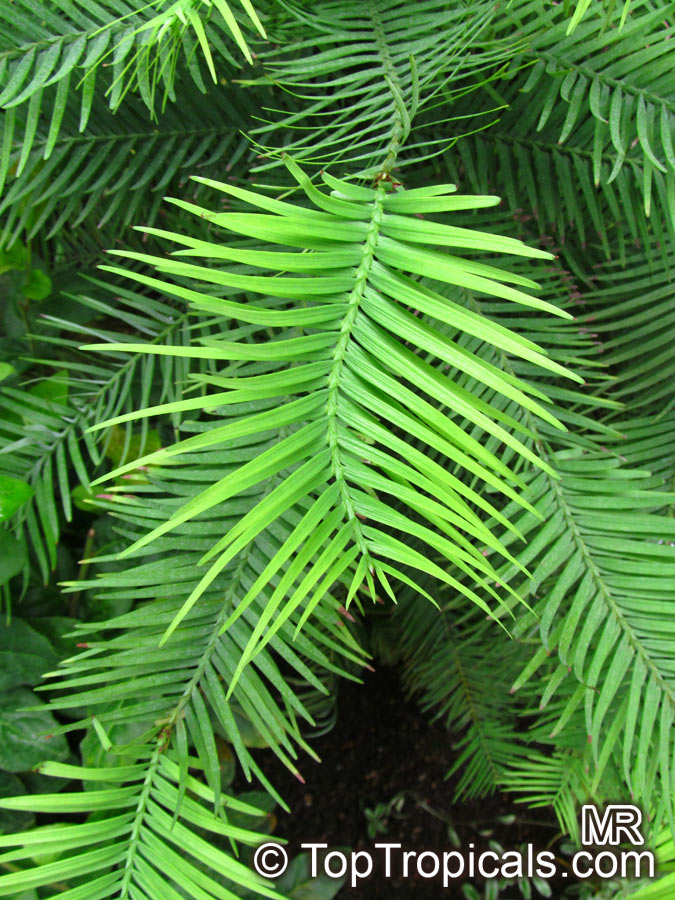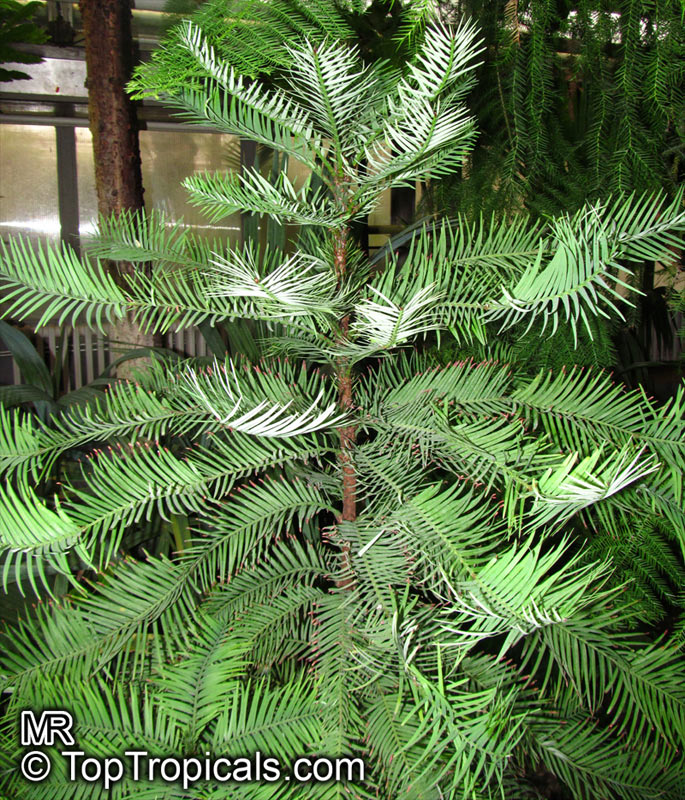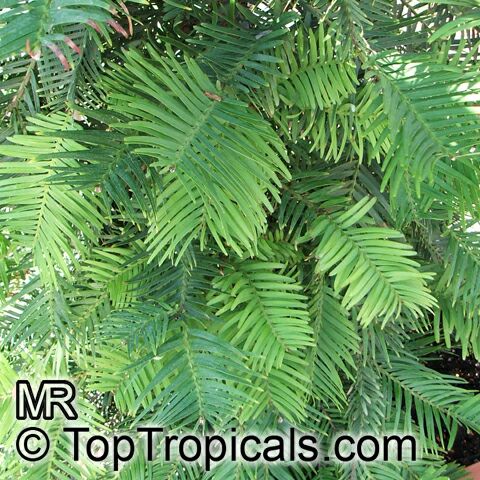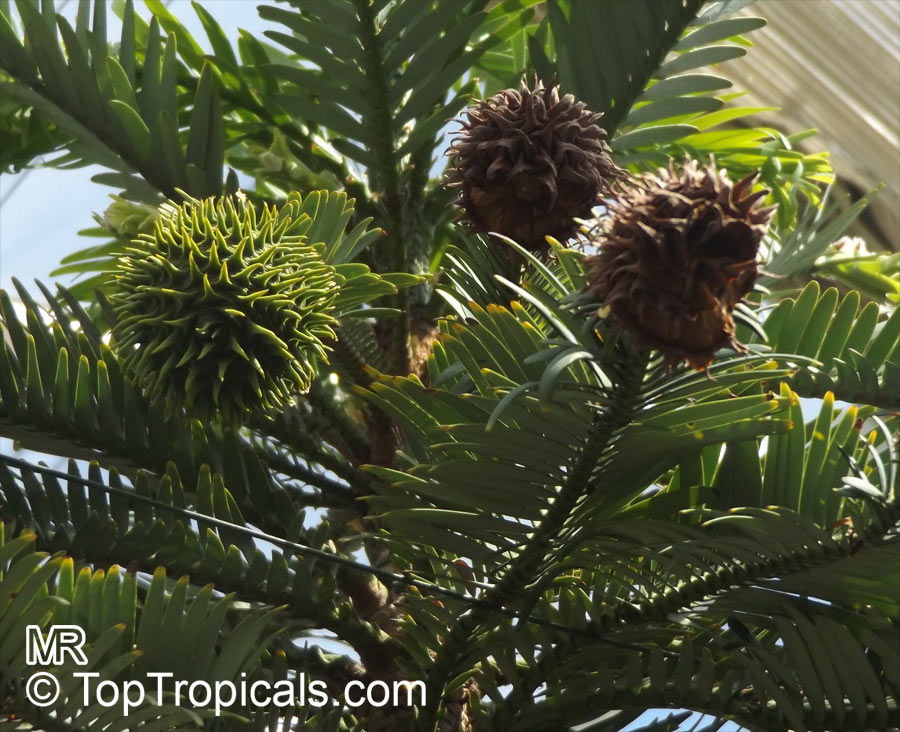Araucariaceae - Botanical Family
| Number of plants found: 4 |
Botanical name: Agathis robusta
Common names: Queensland Kauri, Smooth-barked Kauri
Family: Araucariaceae
Origin: Australia




The Queensland Kauri or Agathis robusta is a majestic tree that is native to Australia. It has cones that are 3-4 inches long, on a short stalk, and very resinous. This tree is best suited for large gardens and public spaces as it is slow-growing and can reach great heights.
Agathis robusta is hardy to USDA Zone 8-11, and can tolerate temperatures down to about mid-20°F for a short time. It should be planted in a full sun location and will require moderate water during the growing season. However, it can withstand dry periods once established.
This tree is an excellent timber tree and is prized for its durability. The Queensland Kauri has one of the strongest timbers in the world and is used in construction, shipbuilding, and furniture making.
The Queensland Kauri is an attractive tree with an upright and well-formed crown. It requires little maintenance once established, but new plants should be watered deeply and regularly until they become well established. This process can take up to two years depending on the climate.
Overall, Agathis robusta is an excellent choice for those looking for a hardy and impressive large specimen for the garden or public space. The slow-growing and long-lived tree is sure to provide an interesting focal point and add an air of prestige to any area.
Botanical names: Araucaria araucana, Araucaria imbricata
Common names: Monkey Puzzle Tree, Chilean Pine
Family: Araucariaceae
Origin: South America








Among the most spectacular are forests of pure Araucaria Araucaria araucana, the hardiest of the genus, is a large, bizarre-looking evergreen, 60-70ft. tall and 30 to 35 feet wide, though the tallest specimens in its native haunts have been measured at over 150 ft. It forms a loose, symmetrical, see-through crown, pyramidal in youth, eventually with a rounded or flattish top. The scale-like leaves are dark green, stiff, sharp-pointed and densely arranged on upwardly-sweeping branches, looking more reptilian than coniferous in character. Because of this it comes to know surprise to most people that this species is estimated to be around 60 million years old, based upon fossil record known today.
Preferring well-drained, volcanic soil, this species is surprisingly tolerant of many soil types. It is very tolerant of maritime exposures, salt-laden winds, and thrives in cool, mild climates. It dislikes hot-dry soils and atmospheric pollution.
Botanical name: Araucaria sp.
Common names: Monkey Puzzle, Bunia Pine, Parana Nut
Family: Araucariaceae
Origin: New Caledonia, Australia, South America








Araucaria is a genus of coniferous trees. There are 19 species in the genus, with a highly disjunct distribution in New Caledonia (where 13 species are endemic), Norfolk Island, eastern Australia, New Guinea, Argentina, Chile, and southern Brazil.
Fossil evidence indicates that ancestral araucaria forests resembling the present-day Monkey Puzzle date back to the age of dinosaurs.
Some of the species are relatively common in cultivation because of their distinctive, formal symmetrical growth habit. Several species are economically important for timber production and the edible seeds.
Botanical name: Wollemia nobilis
Common name: Wollemi Pine
Family: Araucariaceae
Origin: Australia





A majestic conifer with attractive, unusual dark green foliage and bubbly bark, the Wollemi Pine is one of the world's oldest and rarest trees. Paleontologists say that it is likely that dinosaurs crossed paths with the Wollemi Pine and may have eaten Wollemi leaves.
Discovered (1994) in a rainforest gorge within Wollemi National Park (Australia).
The stunning patio and indoor plant (in well lit positions) and feature tree for parks and large gardens.
Use link to repeat this search:
https://toptropicals.com/cgi-bin/garden_catalog/cat.cgi?search_op=and&keyword_op=and&language=e&family=Araucariaceae
&number=10&no_change_lang=1&user=tt&sale=1&first=0
